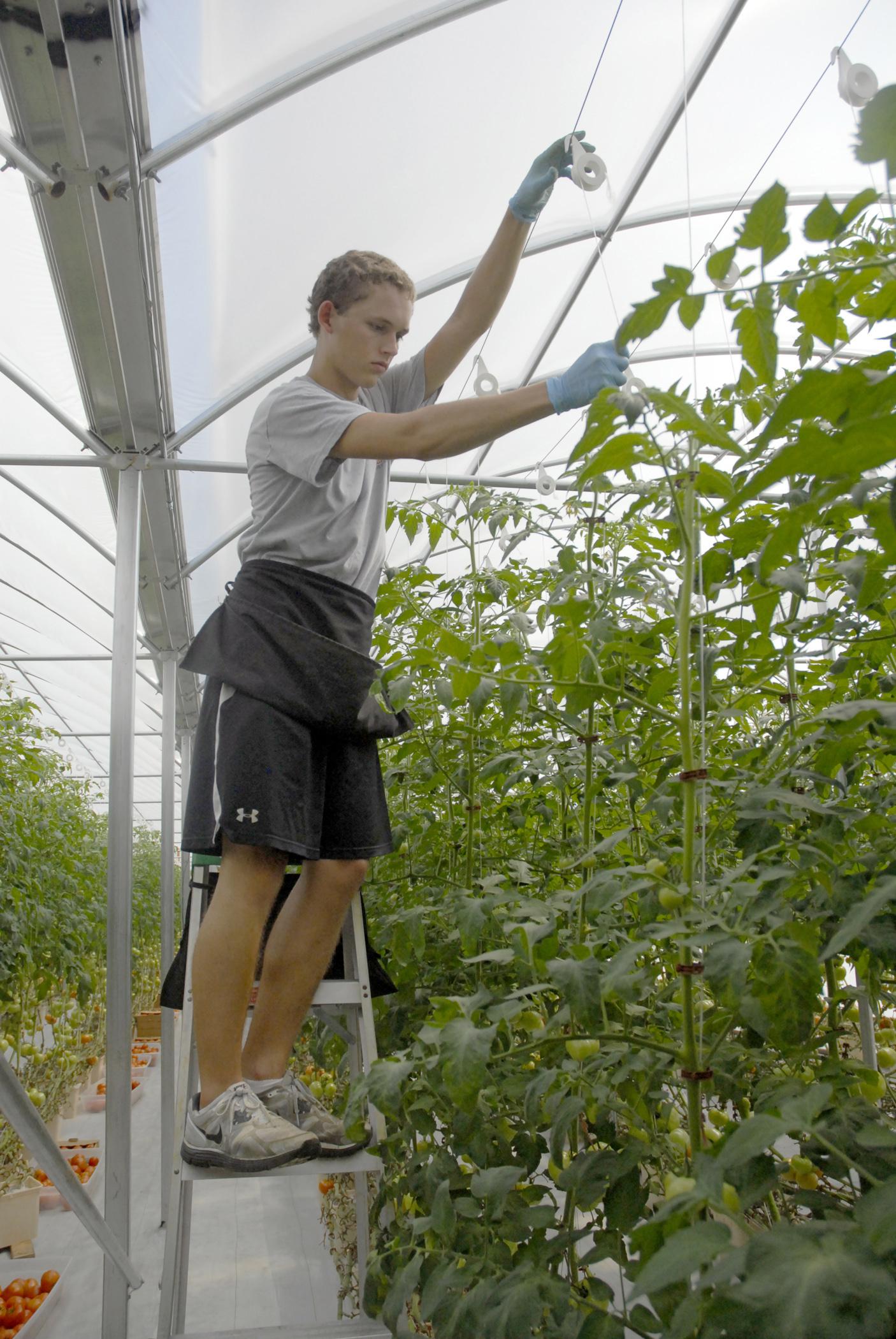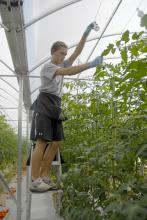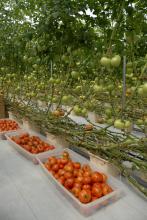Information Possibly Outdated
The information presented on this page was originally released on August 23, 2012. It may not be outdated, but please search our site for more current information. If you plan to quote or reference this information in a publication, please check with the Extension specialist or author before proceeding.
High-tech grower meets local demand
TUPELO – Steve Hale is banking on today’s young consumers embracing sustainable vegetable production for the good of the environment and their health.
2012 is Hale’s first year in the hydroponic tomato business. St Bethany Fresh tomato farm, located just west of Tupelo in Pontotoc County, started with 3,000 plants in December. By mid-April, Hale was harvesting blemish-free, vine-ripened tomatoes.
“Ideally, we would not have peak harvest when everyone else has summer garden tomatoes, but this is a learning process. I’ve never met a hydroponic farmer who knew anything about hydroponic farming before getting into the business,” said Hale, a Mississippi State University entomology graduate.
Hale turned to CropKing, an Ohio-based company, for guidance in growing tomatoes in soil-free, perlite containers. Computer programs adjust nutrients, water levels and temperatures for the plants in the greenhouse. While traditional tomato plants are staked and grown upright for a short growing season, Hale’s tomato vines have a longer life. By August, vines were about 30 feet long. The greenhouse environment enables him to reduce the impact of diseases and insects -- factors that challenge and frustrate traditional gardeners.
“We are growing the Geronimo variety, which is resistant to many diseases, and we have insect screens to eliminate the need for insecticides,” Hale said. “The sensors allow us to apply just the right amount of water directly to the roots.”
Hale said he is counting on the public continuing to ask for local produce grown with reduced needs for chemicals.
“Hydroponic and organic farming are not fads. People are realizing the need to eat healthier, and our business’ future depends on the health attitudes of younger consumers,” he said. “If we are successful, you will see these businesses popping up everywhere.”
Before entering the hydroponic tomato business, Hale worked as a crop consultant. St Bethany Fresh is a family affair that provides additional career opportunities for his adult children, Stephen Hale and Leah Beth Murphy, whose names inspired the farm’s name. Newcomers to the greenhouse tomato business, they have taken part in MSU’s Greenhouse Tomato Short Course, held annually in Raymond.
Rick Snyder, professor and Extension vegetable specialist and short course organizer, said greenhouses in Mississippi can provide vine-ripened tomatoes throughout the winter months, when field-grown tomatoes are not available. Snyder is also a tomato researcher with the Mississippi Agricultural and Forestry Experiment Station.
“Most of our Mississippi greenhouse tomato growers harvest red, vine-ripened tomatoes from November through June, when they don’t compete with growers and home gardeners with outdoor tomatoes,” Snyder said. “This allows them to get a good price for their high quality, locally grown produce.”
Mitchell McCamey, co-owner of the Neon Pig restaurant in Tupelo, buys St Bethany Fresh tomatoes regularly. He said many people have the misconception that local produce is more expensive.
“It is easier to develop relationships with local producers, and they provide a superior product to something that is shipped great distances,” McCamey said. “If I ever had a problem with these tomatoes, St Bethany Fresh would replace the product at no additional cost. It comes down to our relationship and their desire to keep customers satisfied.”
McCamey said his restaurant’s niche is providing food from local producers.
“Some food buyers have no idea where their food comes from, and they just order it without even asking,” he said.
Hale said he believes increased awareness is key to the success of locally grown, sustainable produce.
“We are not expecting to get rich doing this, but we just want to make a living,” Hale said. “Even with our summer heat and humidity, I believe we can grow hydroponic tomatoes in Mississippi, and I’m going to prove it.”




